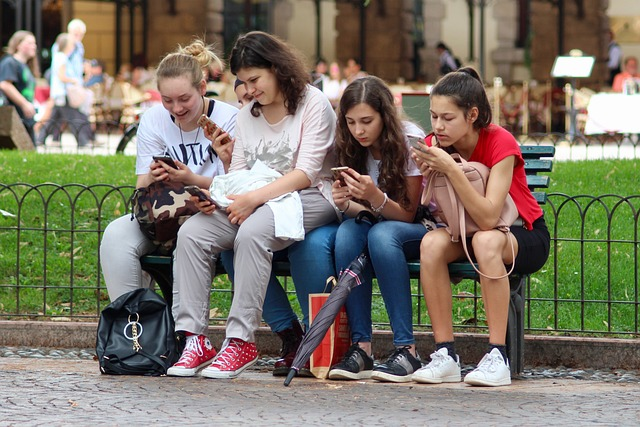A glimpse into Montessori at home with my teenagers (surprisingly similar to the toddler years, guidepost montessori).
As I’ve guided three children into their teenage years, I’ve always found it invaluable to hear how others navigated the stages ahead, even before reaching them myself.
With that in mind, I wanted to share my experience of parenting teenagers—reminding you that parenting is a long game, that teenagers can be an absolute delight (albeit with the occasional volatility—sound familiar, parents of toddlers?), and reassuring you that someday, uninterrupted sleep will return. (I enjoyed nearly 11 hours of sleep last Saturday—please hold the hate mail.)
I hope to inspire you with the idea that raising teenagers doesn’t have to involve constant battles. Instead, they can keep you endlessly entertained and engaged. And while your parenting role evolves when they enter high school, it doesn’t end—they simply need our support in new and different ways.
Here’s what I’ve learned so far about parenting Montessori-style with my teenager

From Montessori learning to high school life
When it came time to consider high schools, we explored options together and allowed them to choose which schools they wanted to apply to. While we reviewed their choices carefully, we supported the schools they selected. Giving them that autonomy was crucial—it meant I never felt responsible for aspects like start times or school rules, as these were part of a decision they had made themselves.
The transition from Montessori to traditional high school turned out to be quite smooth. With teachers clearly outlining expectations, due dates, and requirements, traditional high school felt more straightforward compared to Montessori. I monitored to ensure they had enough time for homework but let them handle planning, studying, and completing projects on their own. I continued to follow the principle of providing as little help as possible and as much as necessary.
On rare occasions during particularly demanding weeks, I helped them break tasks into manageable steps to get back on track—sometimes through a few tears—but they quickly regained their independence.
As their leader
Even though they were no longer in Montessori school, I’ve continued applying Montessori principles to guide them through their teenage years. Viewing my role as a guide—rather than a boss or servant—has been incredibly effective.
This approach has allowed me to build a relationship where I can often be their friend and truly enjoy spending time with them. We still bake and cook together, curl up for movie nights, and—while I avoided screens when they were younger—now watching a Netflix series has become a meaningful way to connect.
Traveling with them is another highlight. Teenagers, like toddlers, can pack their own bags and carry them, and they’re great companions for walking through cities for hours. On a recent trip to Paris, we each picked a place to visit and had the most delightful adventure, from exploring locations from Amélie to indulging in macarons and enjoying an evening at the Musée D’Orsay. Sharing the planning made the experience even more special, as everyone got to enjoy something they loved.
Being a guide also means stepping into the parenting role when safety is a concern. I’m not afraid to enforce limits when needed, though thankfully, it hasn’t been often. This approach stems from years of practice since they were little: “It’s my job to keep you safe. Let’s climb over here,” or “We hold hands on busy roads.” With teenagers, it’s more like, “You want to go to that concert, and it’s my job to ensure you’re safe. How can we make this work?”
For one concert, we agreed they’d invite friends for pizza at home beforehand (so I could meet their group), I’d cycle with them and stay nearby to see them enter safely, warn them about risks inside the venue, and pick them up afterward. It worked out perfectly—they got to enjoy the concert, and I felt confident about their safety.
There have been rare instances when I couldn’t find a safe solution, and I told them they could blame me for not going. I believe they appreciate those boundaries, often looking relieved when I set them.
As for curfews, they aren’t rigid. If a school party ends at 1 a.m., they can stay until then. On regular evenings, they’re usually home by dark and will text if they’re running late.
Do you see how the same principles apply to toddlers and teenagers? Working together, setting clear boundaries, and avoiding threats or bribes help maintain mutual respect and trust at every stage.
Responsibilities and Pocket Money
When it comes to chores and pocket money, I believe in fostering independence and responsibility while ensuring fairness and mutual respect.
I’ve never created a list of chores or given pocket money for specific tasks. If they’re around and available to help—whether it’s setting the table, clearing it, or emptying the dishwasher—I simply ask for their help. If they happen to find clean dishes in the dishwasher, they know to put them away. I wash clothes for my classes every day, so they know if they want me to do their laundry, they just need to bring it to the hamper. The most I might say is, “I haven’t seen your sports clothes for Saturday. Do you need them?” and they’ll quickly go grab them.
Honestly, it’s never been a struggle.
This approach has been in place since they were toddlers. They helped set the table, prepared food with me, and carried their dirty clothes to the laundry hamper.
Can you see how these small steps help lay the foundation for smoother teenage years?
As for pocket money, rather than giving them money for doing chores, my children understood that we would buy the things they needed, and helping around the house was simply part of being a family. When their trainers wore out, they got to choose a new pair within our budget. This way, they didn’t end up spending money on unnecessary things. When they started high school, I gave them €5 for lunch at school. They quickly realized that by making their own lunch, they could save the €5. So far, they’ve been quite savvy with money. Pocket money is a personal decision, but this system has worked well for us.
As they entered their teenage years, both of them developed an interest in earning their own money and started part-time jobs—something I didn’t expect, but it’s quite common for Dutch teens to have jobs, even if it’s just for a few euros an hour.
Inspiring discussions
The most rewarding part is watching these children evolve into their own unique individuals. The conversations we have are truly captivating.
Teenagers have a natural curiosity about the world and a drive to find solutions to the problems they observe. My daughter has proposed a new way to teach chemistry that goes beyond their textbook, she’s actively involved in climate discussions, and is passionate about social issues. My son, a black belt, loves teaching younger kids in his martial arts class. One day, my daughter dreams of attending film school, and the next, she’s considering aerospace engineering. What’s clear is that they understand success isn’t defined by wealth—it’s about doing what they love.
There’s a lot I don’t know about their lives. Parents don’t need to be fully aware of everything their teenagers are doing. But what’s important is that my kids know I’m here for them, whenever they need me.
I’m excited to see what the future holds for them. It will undoubtedly be an adventure, and I’ll be right here at the kitchen table, waiting with a cup of te
